"Li xi" - Lucky Money for Tet
Visiting Vietnam during the first days of the Lunar New Year in 2025, tourists may find themselves intrigued by the joy of children receiving tiny red envelopes from adults. These envelopes contain "li xi" (known as "tiền mừng tuổi" in the North), or lucky money, which is a traditional custom not only prevalent in Vietnam but also in various Asian cultures.
Origin in Folklore
The practice of giving "li xi" is rooted in folklore surrounding an ogre named Tuy. According to the tale, Tuy lived in a large peach blossom tree in the East Sea, where all malevolent spirits resided. While these spirits were contained by deities, they continuously sought to escape and bring harm to humans. On New Year's Eve, as the deities gathered in the heavens, Tuy would emerge to frighten children, causing them to cry out and develop high fevers. To protect their children, families would vigilantly stay awake all night.
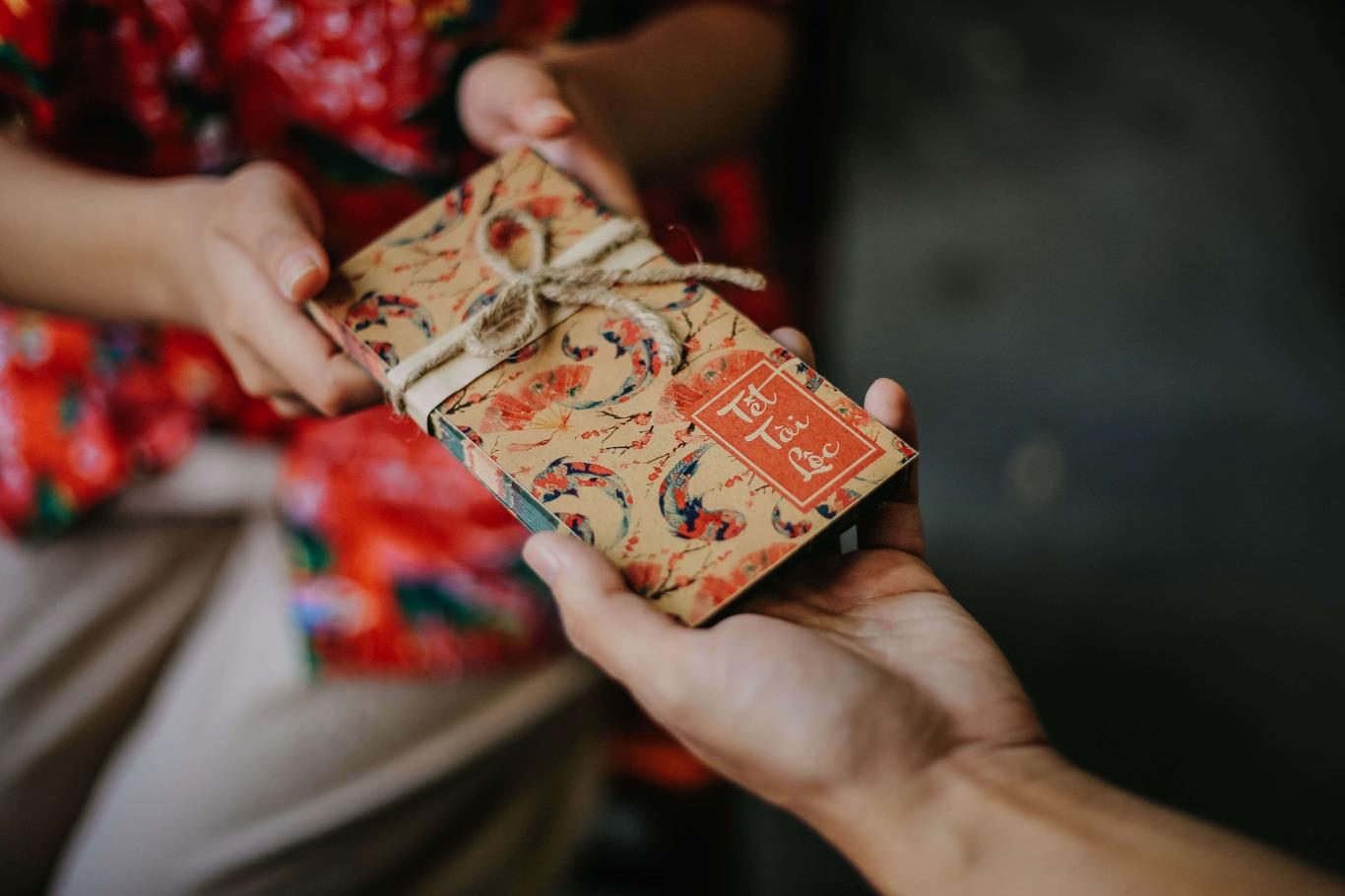 Photo @vietnamchik.com
Photo @vietnamchik.com
However, some deities, visiting a village, transformed into gold coins. Parents would wrap these coins in red cloth and place them under their child's pillow. When Tuy arrived, the shiny coins would glitter, scaring him away. This story spread quickly across the country, and since that time, Vietnamese families have continued the tradition of giving small children lucky money in red envelopes on the first day of the Lunar New Year.
The Significance of the Tradition
"Li xi" plays an integral role in the traditions of Tet Festival in Vietnam, especially among children, who associate it with fond memories of the holiday marking the start of a promising new year. According to a dictionary from the Vietnamese Institute of Linguistics, "li xi" means "giving money to children to celebrate their new age on the first day of the Lunar New Year." This small amount of money symbolizes the good fortune anticipated for the upcoming year. Importantly, "li xi" is not limited to the first day of Tet and can be given up to the 9th or 10th day of the celebrations when adults first meet the children.
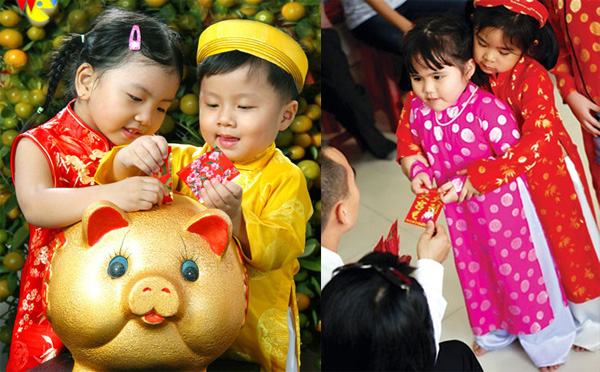 Photo @phmt.vn
Photo @phmt.vn
Beyond the money, the tiny red envelope carries significant meaning. It embodies secrecy and discretion, preventing comparisons among children; adults wish for children to view the money as a New Year gift rather than feel envious if some receive less than their peers. The red color, prevalent in Vietnamese festivals, symbolizes prosperity and good fortune in accordance with Asian traditions. Moreover, "li xi" serves as a token of luck; the more one gives and receives, the more fortunate they are believed to become.
Types of Red Envelopes
On the morning of the first day of the Lunar New Year, children visit their grandparents' homes, offering wishes for happiness and health, and expressing respect and gratitude while presenting gifts. In return, grandparents and adults provide children with lucky money to welcome their new age.
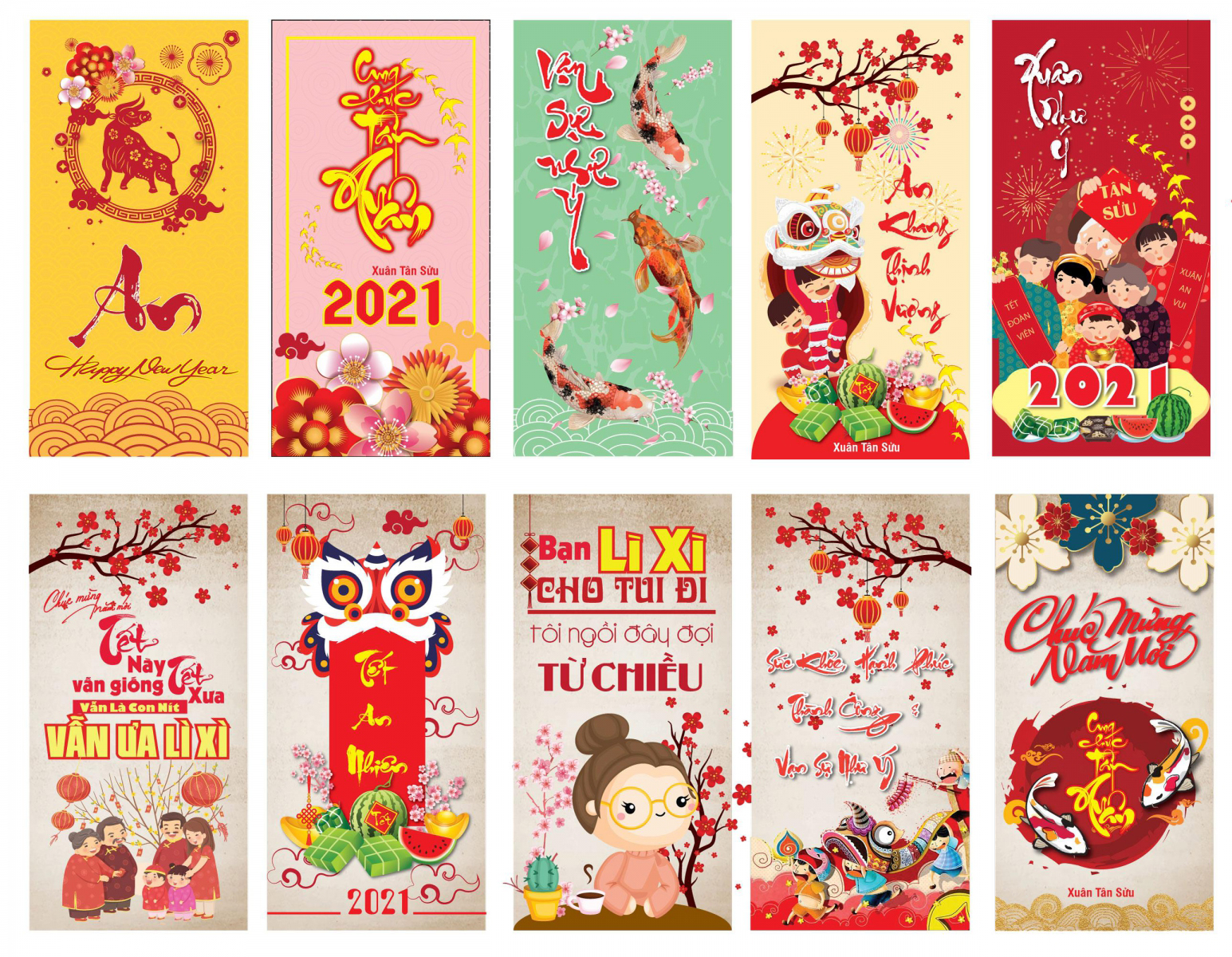 Photo @inthanhdanh.com
Photo @inthanhdanh.com
The tradition of "li xi" endures to this day. A red envelope filled with fresh bills symbolizes the hopes of Vietnamese families that children will "eat well, grow quickly," excel in their studies, and enjoy a joyful year ahead.
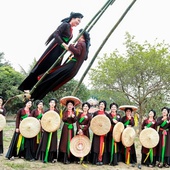
Folk Games During Tet Holidays
In the country area, Tet is often a holiday to celebrate with games, folk singing and village feasts. Get to know some of the most popular communal games during Tet holiday.
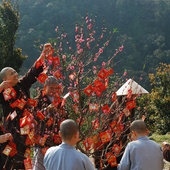
Visiting Pagodas On New Year Days
Together with the festive atmosphere Tet brings to Vietnam every year, the event also the best time of the year for Vietnamese to show their religious belief and traditional custom. Among them, visiting pagodas on the first days of the year has long been a lofty tradition.
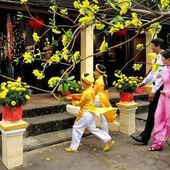
Do and Don't When Xong Dat
Tet Nguyen Dan- the biggest festival of the year- plays an extremely essential role in Vietnamese’s beliefs and culture. Among many complicated religious rituals performed in this occasion, “xong dat” (first visit to a home in a year) is believed to decide the fortune of the host for the whole year.











